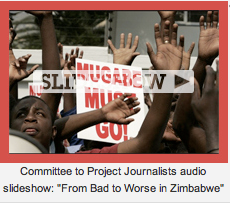- A story about Russia’s efforts to recast Stalin as a hero. In a recent raid, computer hard-drives full of inconvenient documentation to the contrary were carted off from the offices of a human rights group. Also, a new treason law that not only threatens media, but any NGO that maintains an office in Russia.
Critics warned the loose wording will give authorities ample leeway to prosecute those who cooperate with international rights groups.
Under current treason statutes, some NGOs are not considered “foreign organizations,” meaning a person who passes a state secret to an NGO might not be considered a traitor.
Some of Russia’s most prominent right activists, including Moscow Helsinki Group head Lyudmila Alexeyeva and Civic Assistance director Svetlana Gannushkina, said the bill in fact gives authorities the power to prosecute anyone deemed to have “harmed the security of the Russian Federation.”
It is “legislation in the spirit of Stalin and Hitler,” the activists said in a joint statement — legislation that “returns the Russian justice to the times of 1920-1950s.”
- “Online and in Jail”—the snappy headline from an article summarizing a new Committee to Protect Journalists report that found 45% of all “media workers” jailed in 2008 were web-based.
“Online journalism has changed the media landscape and the way we communicate with each other,” said CPJ Executive Director Joel Simon. “But the power and influence of this new generation of online journalists has captured the attention of repressive governments around the world, and they have accelerated their counterattack.”
- China - back to its old “Great Firewall” tricks, restricting web access and harassing bloggers. Sri Lanka is in lock-step, jamming BBC broadcasts and forbidding a leading newspaper from printing the name of the president’s brother, who happens to be the defense minister. ICT4Peace’s Sanjana Huttotuwa paints a bleak future for the nation’s bloggers :
Bloggers in Sri Lanka aren’t recognised as journalists (save for a single statement by leading media freedom organisations in 2007) and do not enjoy the legal protection afforded to traditional media personnel. Independent online media websites have been increasingly hacked into this year. With traditional print media now embracing citizen journalism and with web audiences / consumers growing apace, there is no doubt that the regime’s attention will focus on the web and Internet in the future. Arguably, this already evident is some of the legislation it proposes for media regulation.
- In Kenya, the Communications Amendment Bill – which still awaits the president’s signature to become law - would give the state the authority to raid newsrooms, control broadcast content and take stations off the air. Malaria researcher Bill Breiger wonders whether this aversion to bad news at all costs could impact the monitoring of malaria treatment programs. After all, as a Gates Foundation-funded study released earlier this week on vaccine delivery stats shows, corrupt regimes falsifying records to skim off millions of donor dollars isn’t unheard of.
- In Zimbabwe, which has a knack for making every other “failed state” look slightly less failed, “press freedom is almost extinct,” according veteran journalist Geoff Hill. That was back in June. Today, confronted with a massive outbreak of cholera that has sickened 20,000+ and killed over 1,100, press freedom seems like a dim distant memory. Robert Mugabe can deny the epi
In the U.S., the biggest threat to the fourth estate is economic rather than political. TheNew York Times has been forced to take out a mortgage to pay its bills, while the parent company of the Chicago Tribune and the Los Angeles Times recently declared bankruptcy. Still, even in its weakened state, the Tribune broke a wiretapping story that led to the indictment of a governor on corruption charges last week.
Take a free and independent press out of the equation and you get Stalin as a hero, a Zimbabwean despot who makes up the “truth” as he goes along, creative corruption and a lot of suffering and death that might possibly be prevented. A free press alone isn’t a fix. But knowledge is power and ignorance can be lethal.










